Retro Replay Review
Gameplay
Little Kings II masterfully blends managerial simulation with boardgame-style conquest, creating a gameplay loop that feels both familiar and refreshingly strategic. Each match challenges you to balance domestic investments—like upgrading city defenses or boosting resource production—against the ever-present threat of rival nations eyeing your territories. The flow of tax revenue becomes a lifeline: will you funnel it into a stronger army or trade with opponents to shore up shortages?
(HEY YOU!! We hope you enjoy! We try not to run ads. So basically, this is a very expensive hobby running this site. Please consider joining us for updates, forums, and more. Network w/ us to make some cash or friends while retro gaming, and you can win some free retro games for posting. Okay, carry on 👍)
The dual win conditions introduce layers of tension and adaptability. You can pursue the classic “make another player landless” route, echoing the elimination goal of Risk, or chase randomized objectives—such as amassing a set amount of gold or resources—that keep every game feeling unpredictable. These mixed victory paths force you to remain flexible and scout both your opponents’ holdings and your own evolving strengths.
Combat retains the core mechanics of Risk, where moving armies across bordering territories triggers dice rolls handled by the computer. What sets Little Kings II apart is the fog of war on enemy strength—you’ll have to weigh the odds without hard numbers, making scouting, bluffing, and timing decisive strikes an art in itself. This uncertainty makes victories feel earned and miscalculations all the more palpable.
Further depth comes from seven distinct nations, each boasting unique bonuses and drawbacks. Whether you favor a resource-rich industrial realm or a militaristic power with superior defenses, there’s ample replayability in experimenting with asymmetric abilities. Add in mission objectives—new to this sequel—and evolving city upgrades, and you’ve got a strategic sandbox that keeps you plotting your next conquest long after a single session ends.
Graphics
Visually, Little Kings II opts for a clean, 2D map aesthetic reminiscent of classic turn-based board games. Territories are color-coded and adorned with simple but effective icons denoting resource types, army counts, and city levels. This clarity ensures you’re never lost among the numbers and can focus on high-level strategy rather than deciphering cluttered visuals.
Battle animations are concise yet satisfying: armies march in formation, weapons clash, and victorious units stand atop newly conquered land. While not aiming for AAA cinematic flair, these touches convey the right amount of feedback, reinforcing the strategic stakes without bogging down turn timers.
The UI deserves special mention for its intuitive layout. Resource ledgers, tax sliders, and mission trackers are all accessible via a sidebar that remains unobtrusive. Tooltips and hover-over details help newcomers grasp mechanics, while veteran players can disable hints for a streamlined experience. Load times are minimal, and the game runs smoothly even on modest hardware.
A minimalist medieval theme permeates the design, from parchment-style menus to stylized banners for each nation. It strikes a balance between quaint charm and functional clarity, making long campaigns easy on the eyes and reinforcing the game’s approachable yet strategic tone.
Story
Little Kings II foregoes a linear narrative in favor of emergent storytelling born from your decisions and mission objectives. Each match becomes its own saga—whether you’re racing to fulfill a secret diplomatic accord or rallying your people against a surprise invasion, the tale unfolds through gameplay rather than cutscenes.
That said, the seven playable nations each come with brief lore snippets and flavor text that lend personality to their rulers and citizens. These world-building details rarely overshadow the mechanics but provide enough context to make you care when you upgrade a city gate or negotiate a resource treaty.
Mission structures add further narrative layers by tying goals to in-game events: securing a caravan route might come with a backstory about trade disputes, while building a fortress hints at looming threats. These mini-stories inject color into what could otherwise be a purely numbers-driven exercise, making each objective feel purposeful.
While purists seeking a sprawling, character-driven tale may find the plot minimal, the emergent approach is ideal for strategy fans who enjoy crafting their own drama on a grand political stage. The ebb and flow of alliances, betrayals, and surprise victories becomes your story to tell.
Overall Experience
Little Kings II offers a deeply satisfying hybrid of empire management and tactical conquest. Its robust systems—ranging from tax allocation and resource trading to hidden-strength battles and evolving city upgrades—ensure that no two matches ever feel identical. Strategic depth and replay value are among the game’s strongest assets.
For newcomers, the learning curve is softened by clear UI cues, helpful tooltips, and a concise tutorial that walks you through basic mechanics. Seasoned strategy veterans will appreciate the asymmetrical nations, unpredictable mission objectives, and the fog-of-war tension that has you second-guessing every invasion.
Minor drawbacks include the absence of a fully fleshed-out narrative and a somewhat minimalist audiovisual presentation. However, these elements never overshadow the core gameplay, which remains engaging and rewarding from start to finish. Multiplayer modes and hotseat play further extend the game’s lifespan, letting you test your mettle against friends or the AI.
In sum, Little Kings II stands as a compelling choice for players who relish strategic boardgame experiences on PC. Its combination of managerial nuances, Risk-style combat, and emergent mission-based drama creates an addictive formula that will keep you plotting, scheming, and conquering for hours on end.
 Retro Replay Retro Replay gaming reviews, news, emulation, geek stuff and more!
Retro Replay Retro Replay gaming reviews, news, emulation, geek stuff and more!
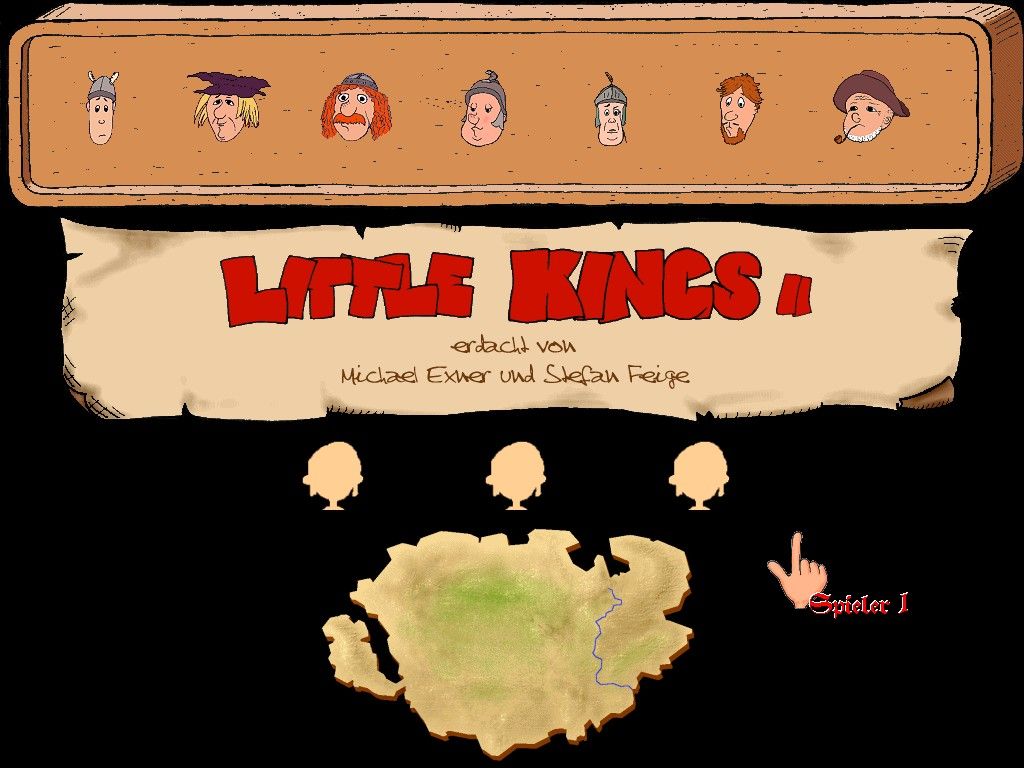
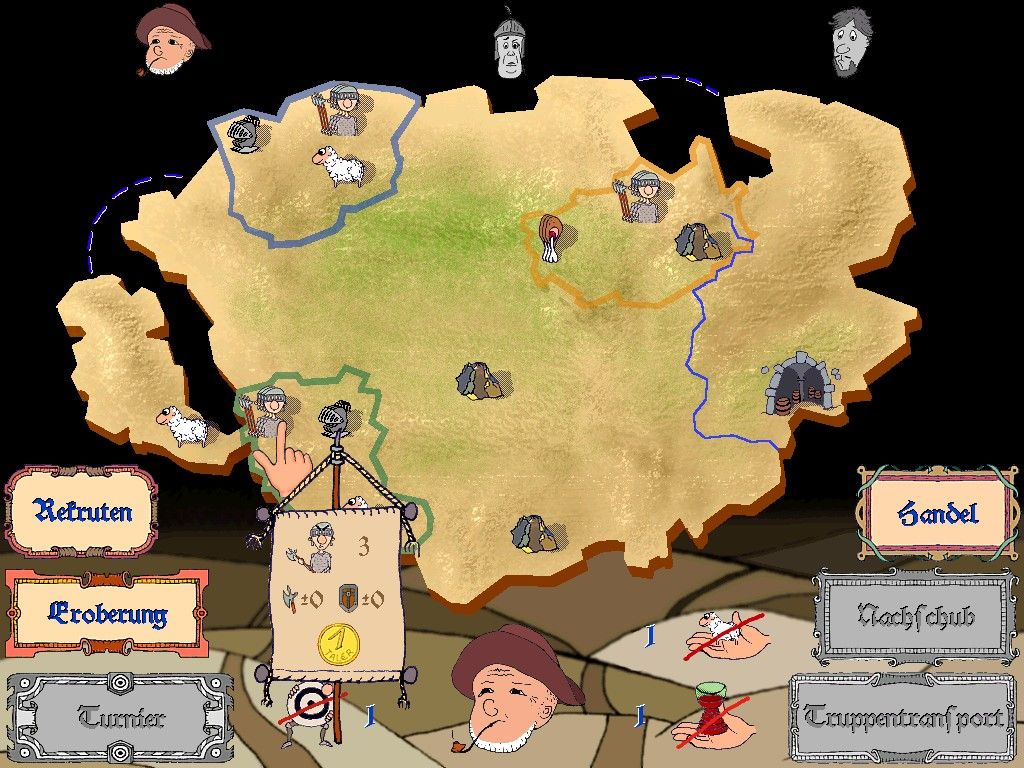
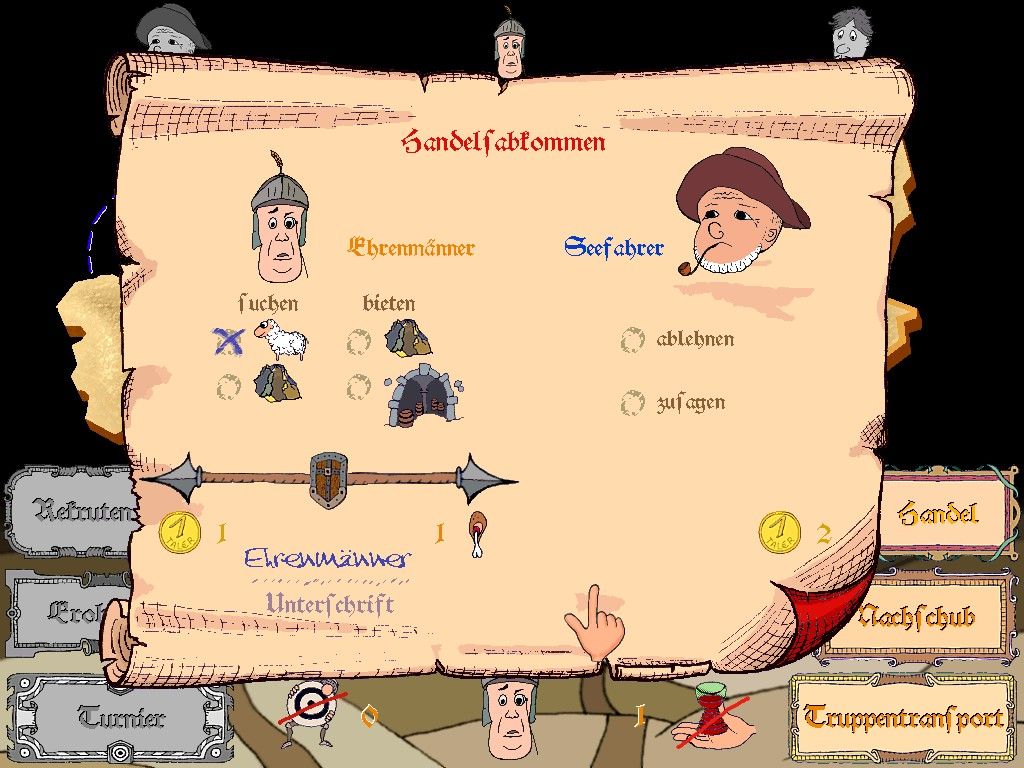
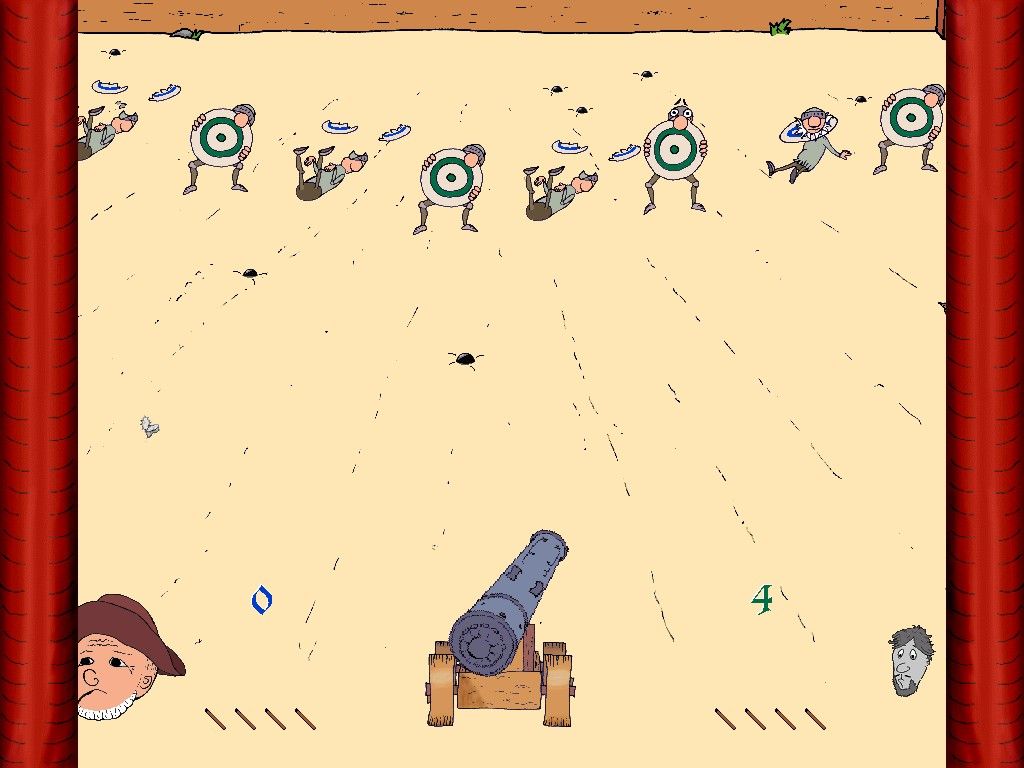
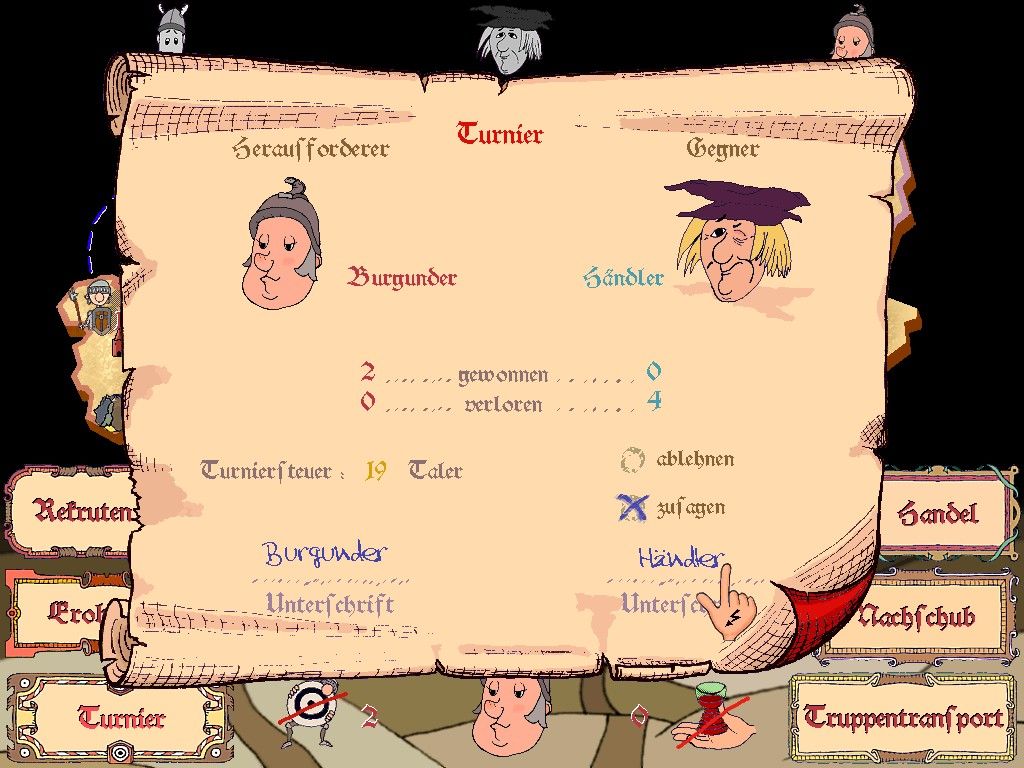
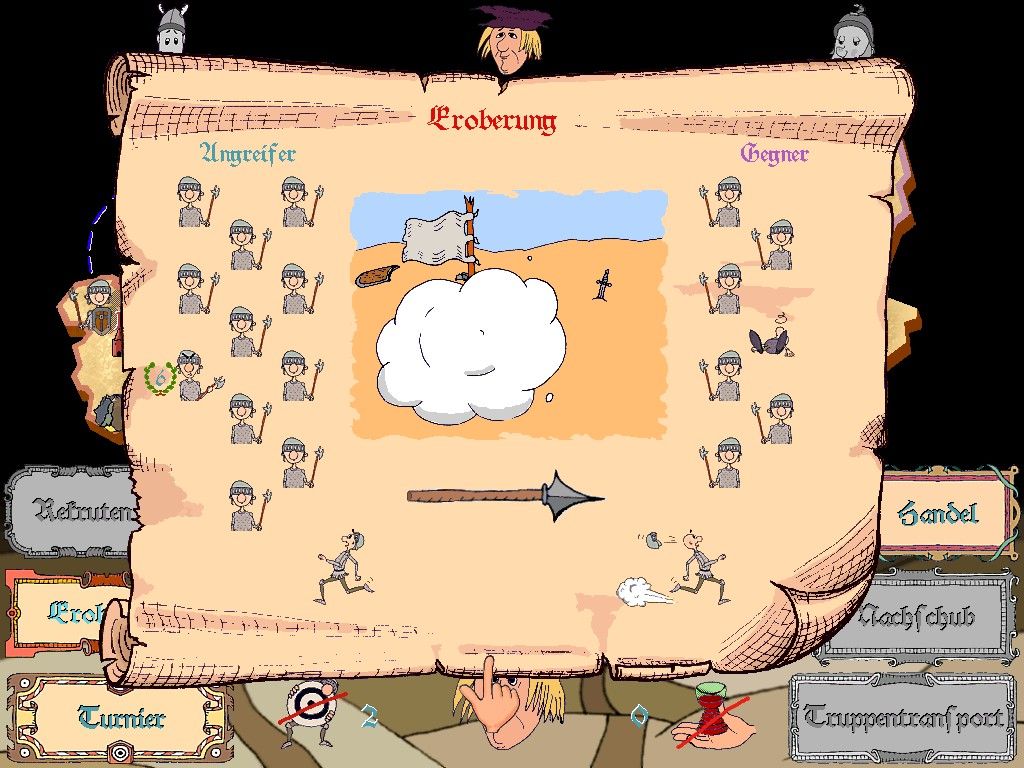



Reviews
There are no reviews yet.